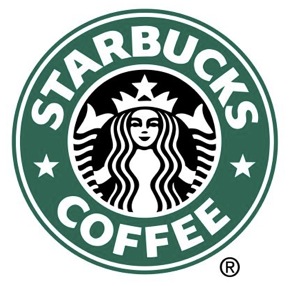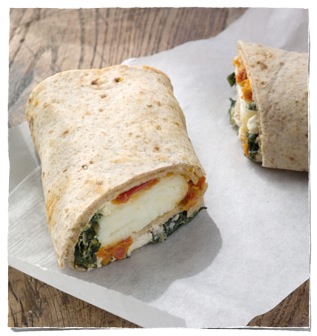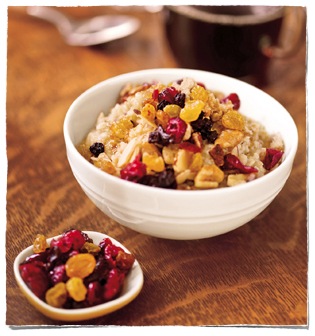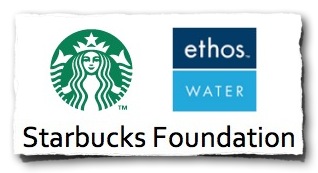Corporate Philanthropy | Activism | Health
 Summary. Companies aren’t people, yet we often attribute human characteristics to them based on their sustained aggregate net impact on the world.
Summary. Companies aren’t people, yet we often attribute human characteristics to them based on their sustained aggregate net impact on the world.
This article could be expanded into a book about the ethics of Starbucks – similar to What Would Google Do? by Jeff Jarvis.
However, for the sake of brevity, only the essential points will be presented here.
By closely examining Starbucks products, it is possible to learn about the collective ethical tendencies of the company through a kind of reverse engineering.
 Spinach & Feta Breakfast Wrap. I’ve been eating at Starbucks with some frequency in recent months. The Spinach & Feta Breakfast Wrap is one of the first products I tried.
Spinach & Feta Breakfast Wrap. I’ve been eating at Starbucks with some frequency in recent months. The Spinach & Feta Breakfast Wrap is one of the first products I tried.
After being impressed with how filling and satisfying the wrap is, I decided to look up the nutritional information.
I was surprised by what I discovered and various questions came to mind.
- High Nutrition. Its common for foods to be fortified. This is a way food manufacturers can boast about high nutritional values for food products that are not much different than recycled cardboard. However, with the Spinach & Feta Breakfast Wrap, Starbucks has chosen to use food ingredients that are naturally high in nutritional value. So, the Spinach & Feta Breakfast Wrap has 19 grams of protein, 6 grams of Fiber (24%), Vitamin A (45%), Vitamin C (15%), Calcium (25%), and Iron (15%). Why does Starbucks use wholesome natural ingredients instead of just cheap processed digestible substances injected with cheap vitamins?
- Low Calorie. It’s not uncommon for similar sandwiches and wraps to have 500 calories or more – once you add sufficient toppings and sauces to make them edible. It’s a common game that restaurants engage in. They provide nutritional information for their products, but its based on no sauces or toppings. In reality, most restaurant foods are much higher in calories once they are fixed up to be edible. Yet, with the Spinach & Feta Breakfast Wrap, it’s delicious as-is. Why did Starbucks take the time to engineer a low calorie but delicious breakfast wrap when nobody else is offering one? It’s not like there’s a market demand for it.
- Low Cholesterol. Starbucks uses egg whites for the wrap. Most people don’t know or care that this sandwich has 20mg of cholesterol (7%) instead of 155mg of cholesterol (52%) that a whole-egg sandwich might have. Why go to the extra trouble of making a low cholesterol product that’s heart healthy when most people don’t notice or care?
- Low Cost. Why would Starbucks sell their breakfast wrap for a few dollars when similar products elsewhere sell for almost twice that price? They could easily make more money on this product.
- Low Cruelty. For some reason, Starbucks chose to spend more on cage-free eggs rather than eggs from a factory farm. While animal welfare is a concern in some niche markets, it’s not a big selling point nation-wide. So, the additional cost of cage-free sourced eggs won’t ever produce enough sales to make it a profitable choice. Why put animal welfare above profits?
- No Additives. It’s common for food manufacturers to include ingredients in their products that stimulate cravings and at the same time reduce the brain’s ability to sense when you are full. [source] Some foods include additives like MSG that are harmful. For some reason, Starbucks chooses to use wholesome natural ingredients in their food. Why would Starbucks choose to create a food product that is filling and satisfies hunger?
It’s fairly clear that Starbucks has another agenda besides placing profits before people. Their agenda is seen throughout their product line and policies.
 Perfect Oatmeal. As a Starbucks Gold Card member, I qualify to receive special offers. I recently received a postcard with a coupon for a free serving of the Starbucks Perfect Oatmeal.
Perfect Oatmeal. As a Starbucks Gold Card member, I qualify to receive special offers. I recently received a postcard with a coupon for a free serving of the Starbucks Perfect Oatmeal.
As with the Spinach & Feta Breakfast Wrap, the Perfect Oatmeal is an inexpensive yet nutrient-dense meal.
Even with all the extras (fruit, nuts, and brown sugar) it only has 390 calories. With just the brown sugar, it has 190 calories. Alone, there are only 140 calories, yet 4 grams of fiber and 5 grams of protein.
 Ethos Water. The Starbucks Foundation has developed Ethos Water. Their brand of bottled water states on the label, “For every bottle of Ethos water you buy, Starbucks will donate 5 cents to support humanitarian programs in coffee-growing communities, providing clean, safe water to those in need.”
Ethos Water. The Starbucks Foundation has developed Ethos Water. Their brand of bottled water states on the label, “For every bottle of Ethos water you buy, Starbucks will donate 5 cents to support humanitarian programs in coffee-growing communities, providing clean, safe water to those in need.”
Creating Jobs. Another initiative of Starbucks is their Create Jobs for USA campaign. Learn more on the CreateJobsForUSA.org website.
World Improvement Agenda. As one begins to analyze the smaller intentional pieces that make up Starbucks, a pattern emerges. It’s clear that selling the world’s best coffee is just a front to generate money for their various world improvement initiatives. A little sleuthing on the Starbucks website reveals their true motivations. The Goals and Progress report is quite revealing in this regard. Instead of talking about market share, profits, and last quarter’s sales, the Goals and Progress report evaluates the following areas of positive net impact:
- Ethical Coffee Purchasing & Farmer Support – Helping farmers with affordable loans and other support.
- Community Involvement – Generating 1 million hours of volunteer community service.
- Promoting Recycling & Reuse. Taking a leadership role by selling reusable cups and working toward 100% recyclable cups by 2015.
- Energy & Water Conservation. Buying renewable energy and reducing energy consumption company-wide.
- Green Building. Starbucks has committed to building all new company-owned stores according to LEED certification standards.
Conclusion. It’s fairly clear from the list above, that Starbucks is significantly focused on creating a better world. Now that they have seemingly perfected the process of economically delivering exceptional coffee as well as other beverages and foods, they have directed their attention to improving lives.
“Starbucks is a charitable world improvement organization posing as a business in order to internally fund their social betterment initiatives. In this way, they don’t rely on private or corporate donors to fund their good works.” ~ Greg Johnson